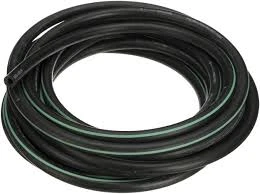rubber fuel line
ਨਵੰ. . 23, 2024 21:18 Back to list
rubber fuel line
Understanding Rubber Fuel Lines Importance, Features, and Maintenance
Rubber fuel lines are a critical component of any fuel delivery system in vehicles, machinery, and various equipment. These hoses transport fuel from the tank to the engine, ensuring that combustion occurs efficiently and effectively. While they may seem like simple tubes, their role in the overall functionality and safety of a vehicle is paramount. In this article, we will explore what rubber fuel lines are, their importance, features that make them suitable for fuel transport, and tips for maintaining them.
What Are Rubber Fuel Lines?
Rubber fuel lines are flexible hoses made from rubber compounds that are designed to withstand the harsh conditions involved in transporting fuel. These fuels can include gasoline, diesel, and ethanol blends, each posing unique challenges concerning chemical compatibility and temperature variations. Rubber fuel lines are designed to be resilient, providing reliable performance in various operating conditions.
Importance of Rubber Fuel Lines
The significance of rubber fuel lines cannot be overstated. They are instrumental in ensuring that fuel is delivered to the engine efficiently, directly influencing engine performance. A malfunctioning fuel line can lead to fuel leaks, which are not only dangerous—potentially causing fires—but can also result in decreased efficiency and increased emissions. Moreover, poor fuel line performance can lead to engine stalling and other operational issues, making the role of a quality rubber fuel line critical in any fuel-dependent system.
Features of Quality Rubber Fuel Lines
1. Chemical Resistance One of the key features of rubber fuel lines is their ability to resist degradation caused by fuels and additives. High-quality rubber compounds are formulated specifically to handle the corrosive properties of different fuels. This resistance ensures longevity and reliability.
2. Temperature Tolerance Fuel lines are subject to a wide range of temperatures, from freezing conditions to extreme heat generated by the engine. Rubber fuel lines are engineered to maintain flexibility and integrity across these temperature ranges, preventing cracking or bursting.
3. Pressure Handling Fuel systems operate under varying pressures, and rubber fuel lines are designed to withstand these pressures without rupturing. The construction of the hoses, including layer thickness and reinforcement materials, contributes to their strength.
4. Flexibility and Bendability Unlike rigid piping, rubber fuel lines provide the flexibility necessary to navigate around the engine bay and various components. This flexibility helps in installation and repairs, offering ease of movement in tight spaces while maintaining a secure connection.
rubber fuel line

5. UV Protection Many rubber fuel lines feature UV-resistant properties, preventing degradation from sun exposure. This feature is essential for vehicles and machinery that are often left outdoors.
Maintenance of Rubber Fuel Lines
Maintaining rubber fuel lines is crucial to ensure their longevity and performance. Here are some tips for effective maintenance
1. Regular Inspection Regularly check the fuel lines for any signs of wear, such as cracks, bulges, or leaks. Early detection of these issues can prevent more significant problems down the line.
2. Cleanliness Ensure that the fuel system is kept clean. Debris and contaminants can affect the integrity of the rubber fuel lines and the performance of the fuel system.
3. Proper Installation When installing new fuel lines, ensure they are correctly fitted and tightened. Loose connections can lead to leaks, which pose safety hazards.
4. Temperature Management Avoid exposing fuel lines to extreme temperatures when possible. If your vehicle or machinery is commonly used in harsh conditions, consider options that include heat shielding.
5. Use Manufacturer-Approved Parts When replacing rubber fuel lines, always opt for manufacturer-recommended components. These parts are designed specifically for the system, ensuring compatibility and performance.
Conclusion
Rubber fuel lines play a vital role in the safe and efficient transportation of fuel in various applications. Understanding their importance and features can help users appreciate their value, while regular maintenance practices can significantly enhance their lifespan and reliability. Investing in quality rubber fuel lines and caring for them can lead to better engine performance, improved safety, and a more enjoyable driving experience. Always remember that a well-maintained fuel system is key to a healthy vehicle.
